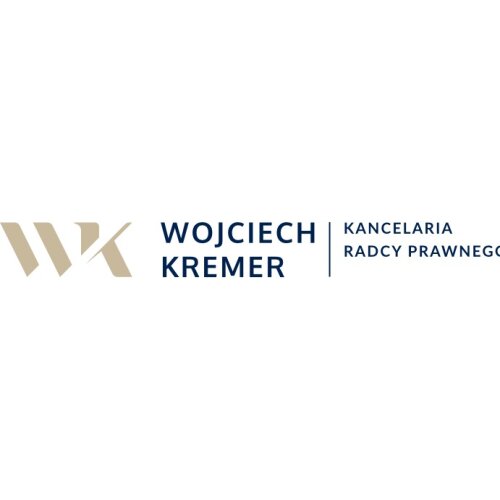Best Energy Regulatory Law Lawyers in Krakow
Share your needs with us, get contacted by law firms.
Free. Takes 2 min.
List of the best lawyers in Krakow, Poland
About Energy Regulatory Law in Krakow, Poland
Energy Regulatory Law in Krakow, Poland, forms a critical part of the legal framework that governs the generation, distribution, and sale of energy. This branch of law is designed to ensure the efficient and lawful operation of the energy sector while safeguarding the interests of consumers, operators, public authorities, and the environment. The laws in this area are shaped by both national legislation and European Union directives, which set standards for electricity, gas, and renewable energy use. In Krakow, a city with increased focus on clean energy and air quality due to environmental challenges, compliance with energy regulations is especially significant for businesses, utilities, and individuals alike.
Why You May Need a Lawyer
Energy Regulatory Law can be highly complex, involving numerous legal requirements and ongoing regulatory changes. You may need a lawyer if you are:
- A business planning to build or modify energy infrastructure such as power plants, wind farms, or solar installations
- An energy company facing regulatory audits or investigations from authorities
- A property owner affected by energy distribution or transmission infrastructure projects
- An investor interested in the Polish energy market who needs guidance on regulatory compliance
- A consumer disputing utility bills or affected by energy supply interruptions or changes in service
- A participant in renewable energy programs requiring technical or financial support under local schemes
Local Laws Overview
In Krakow, as throughout Poland, Energy Regulatory Law is governed primarily by national statutes supported by EU regulations. The primary legal acts include:
- Energy Law Act - This sets rules for energy companies, licensing, tariffs, and consumer protection.
- Renewable Energy Sources Act - This regulates support systems for renewable energy and obligations for energy producers.
- Environmental Protection Law - This impacts energy investments with respect to emissions and environmental permits.
- EU directives - These shape market competition, energy efficiency, and integration with the European grid.
Frequently Asked Questions
What authority regulates energy providers in Krakow?
The main regulatory body is the Energy Regulatory Office (URE) which supervises both the electricity and gas sectors throughout Poland, including Krakow.
Do I need a permit to build a solar installation in Krakow?
Most solar installations require notification or permitting from local authorities and may need to comply with both building and energy regulations, especially for larger or commercial systems.
What rights do energy consumers have in Krakow?
Consumers are protected by laws that ensure access to energy, fair pricing, transparency in billing, and the ability to lodge complaints or disputes through defined procedures.
Can I choose my electricity supplier?
Yes, Poland's energy market allows consumers to select their electricity supplier from a range of licensed companies in most areas, including Krakow.
What are the penalties for violating energy regulations?
Penalties may include fines, suspension of licenses, or even criminal responsibility in cases of serious violations such as unlawful disconnection or hazardous installations.
How do energy regulations impact air quality in Krakow?
Stringent local rules, such as bans on solid fuel heating and incentives for cleaner energy sources, are enforced to address Krakow's significant air pollution challenges.
What support is available for renewable energy projects?
Government and EU programs offer subsidies, feed-in tariffs, and other incentives for renewable energy investment, but these often require strict compliance with regulatory criteria.
How can I resolve a dispute with an energy company?
Disputes can be addressed by submitting a complaint to the energy supplier, followed by mediation via the Energy Regulatory Office or, if necessary, legal action in the appropriate courts.
What is the process for connecting to the energy grid?
Applicants must submit a request to the local Distribution System Operator, provide technical information, and meet various regulatory and contractual requirements for grid access.
Are there any local rules unique to Krakow?
Krakow has adopted local air protection laws, including restrictions on the use of coal and wood in heating systems, which add to standard national energy regulations.
Additional Resources
Several resources can help those seeking information or legal advice on Energy Regulatory Law in Krakow:
- Energy Regulatory Office (URE) - The central authority for licensing and consumer protection in the energy sector.
- Polish Ministry of Climate and Environment - Provides policy updates and regulations relating to energy and renewables.
- Krakow City Council - Issues local ordinances on energy use and environmental protection.
- Provincial Environmental Protection Inspectorate in Krakow - Oversees compliance with local environmental regulations impacting energy investments.
- Consumer Protection Office (UOKiK) - Supports consumers in disputes with utility companies.
- Legal Aid Centers - Offer basic guidance and legal assistance for individuals in need.
Next Steps
If you believe you need legal advice or representation in Energy Regulatory Law in Krakow, Poland, follow these steps:
- Gather all relevant documents, such as contracts, correspondence, technical specifications, and official notifications.
- Define your main legal objectives or concerns to clarify what outcome you are seeking.
- Contact a lawyer or a specialized legal firm experienced in energy regulatory matters, ideally with knowledge of both national and local regulations.
- If appropriate, contact the relevant regulatory body, such as the Energy Regulatory Office, for information or mediation services.
- Consider utilizing free legal aid or consultation opportunities, especially if your situation involves consumer rights or small-scale renewable projects.
Lawzana helps you find the best lawyers and law firms in Krakow through a curated and pre-screened list of qualified legal professionals. Our platform offers rankings and detailed profiles of attorneys and law firms, allowing you to compare based on practice areas, including Energy Regulatory Law, experience, and client feedback.
Each profile includes a description of the firm's areas of practice, client reviews, team members and partners, year of establishment, spoken languages, office locations, contact information, social media presence, and any published articles or resources. Most firms on our platform speak English and are experienced in both local and international legal matters.
Get a quote from top-rated law firms in Krakow, Poland — quickly, securely, and without unnecessary hassle.
Disclaimer:
The information provided on this page is for general informational purposes only and does not constitute legal advice. While we strive to ensure the accuracy and relevance of the content, legal information may change over time, and interpretations of the law can vary. You should always consult with a qualified legal professional for advice specific to your situation.
We disclaim all liability for actions taken or not taken based on the content of this page. If you believe any information is incorrect or outdated, please contact us, and we will review and update it where appropriate.













